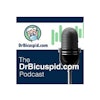
Your patients take various medications that help them live longer, healthier lives, but these drugs also have side effects you need to know about. That's why pharmacist Tom Viola, RPh, detailed dental considerations for the most frequently prescribed medications at the recent California Dental Association's CDA Presents 2017 meeting in San Francisco.
In his presentation, Viola reviewed the top medications prescribed in the U.S., summarized how they worked, and then listed the adverse effects and considerations dental staff should know about each one. Although these vary greatly based on medication type, one thread stayed constant throughout his presentation. Ask patients these two questions about their medications: "What do you take?" and "Why do you take it?"
"I can't tell you how important it is to ask those two questions back to back," Viola said.
Listed below in order are the most frequently prescribed medications, and what you need to know about each one.
| Frequently prescribed medications and their uses | ||
| Medication | Manufacturer | Used to treat |
| Lipitor (atorvastatin) | Pfizer | High cholesterol |
| Nexium (esomeprazole magnesium) | AstraZeneca | Gastroesophageal reflux disease (GERD) |
| Plavix (clopidogrel bisulfate) | Bristol-Myers Squibb | Heart disease and chest pain |
| Singulair (montelukast) | Merck | Asthma |
| Lexapro (escitalopram) | Allergan | Depression and anxiety |
| Crestor (rosuvastatin) | AstraZeneca | High cholesterol |
| Synthroid (levothyroxine sodium) | Abbott | Underactive thyroid (hypothyroidism) |
| ProAir HFA (albuterol sulfate) | Teva Pharmaceuticals | Asthma and chronic obstructive pulmonary disease (COPD) |
| Advair Diskus (fluticasone/ salmeterol) |
GSK | Asthma and COPD |
| Cymbalta (duloxetine) | Eli Lilly | Depression, anxiety, neuropathy, and fibromyalgia |
Lipitor, Crestor, and others
Cholesterol is a type of fat that is used by our muscles, but muscles do not require as much fat as we age, Viola explained. The extra cholesterol then winds up in the bloodstream, where it forms tumors, contributes to hardened arteries, and takes up space.
While diet and exercise have proved to help lower low-density lipoprotein (LDL) or "bad" cholesterol, so can Lipitor (atorvastatin), Crestor, and other antihyperlipidemic agents. These medications may also be used by patients who do not necessarily have high cholesterol but have an increased risk of heart attacks and chest pain, Viola noted.
Adverse effects from antihyperlipidemic agents include headaches, myalgia, flatulence, and anterograde amnesia, meaning that instructions given earlier in the day may be forgotten later on. Muscle pain, including jaw pain, is another important side effect for dental professionals to know about. Viola also cautioned that heart conditions can masquerade as dental and jaw pain as well.
Nexium and proton pump inhibitors
Many medications used to treat GERD and acid reflux, including Nexium (esomeprazole magnesium), are proton pump inhibitors, meaning they prevent hydrogen ions (protons) from producing too much acid. However, reducing stomach acid also interferes with the body's ability to digest food and absorb calcium.
So patients who take Nexium and related drugs may potentially have a problem with the osseointegration of dental implants, or, if food digestion is interrupted, they may experience halitosis. In addition, patients with GERD or acid reflux concerns may be more comfortable in a semisupine position.
Plavix and antiplatelets
Plavix (clopidogrel bisulfate) and related antiplatelet agents are used to prevent cardiovascular events in adults with acute coronary syndrome or who have a high risk of stroke or heart attack. The advice used to be that patients should stop temporarily taking these drugs before dental surgery, but that's no longer case, and if you want a patient to stop taking antiplatelets, consult with a cardiologist first, Viola said.
"Some patients are so used to it, they do it on their own," he said. "You've got to be the voice of reason and say, 'Don't do that. Don't put your life at risk. We can work around it.' "
Patients who take antiplatelet agents may be more prone to bleeding during dental procedures. To help control bleeding, dental professionals can suture, apply pressure, or use a laser, ice cold water, or a tea bag, Viola said. As a last-resort "nuclear option," he recommended a drop of 1:50,000 epinephrine as a topical application.
Dental professionals should also be aware that Plavix can cause dysgeusia, or distortion of the sense of taste. Patients who do not know about this side effect may try to blame you for their poor sense of taste.
"People think it's your fault," he said. "They say, 'Something's wrong with my mouth. I can't taste anymore.' That's a big one."
Singulair, ProAir HFA, and asthma medications
Singulair (montelukast) and ProAir HFA (albuterol sulfate) are two medications commonly used to treat asthma, although they both work in different ways and require different considerations.
Singulair treats allergies and asthma by reducing inflammation; however, reduced inflammation also increases the risk of infection and impairs wound healing. Meanwhile, ProAir HFA helps the muscles in the airway relax and is the gold standard of bronchodilators, which means some patients may overuse it, according to Viola.
"The bronchodilator to beat them all is albuterol," he said. "We love it. Your patients love it too much."
The more often patients use an albuterol inhaler, the more resistant they can become to its effects and the more side effects they can experience, Viola said. One of those side effects is xerostomia.
In addition, if a patient is taking any type of medication for asthma, you should take special precautions, he warned. The first is to ask patients with asthma to bring their inhaler with them to their dental appointment, but also have a spare short-acting bronchodilator readily available in case their inhaler is running low. The second is that patients with asthma are also more likely to be allergic to sulfites than the average person, and sulfites are frequently used in dentistry, such as to preserve epinephrine.
Advair Diskus and medications with steroids
Advair Diskus (fluticasone/salmeterol) is another medication commonly prescribed to treat asthma symptoms and contains steroid fluticasone. Steroids are also used in popular nasal allergy sprays, including Nasonex (mometasone furoate monohydrate).
A noteworthy side effect of steroids is that they are associated with fungal infections in the throat and oral cavity. For patients with oral candidiasis, Viola recommended two doses of nystatin with the following regimen:
- Swish and spit out the first dose to remove clumps of fungus.
- Swish briefly, gargle, and swallow the second dose.
For dental professionals concerned about the sugar in nystatin, Viola said nystatin vaginal cream can be prescribed for oral use. However, he did caution that some male patients may think you or the pharmacist have made a mistake.
Lexapro and SSRIs
Lexapro (escitalopram) and other selective serotonin reuptake inhibitors (SSRIs) are used to treat depression and anxiety, but SSRIs are also known to increase the risk of bleeding.
They can cause or worsen bruxism as well. If a patient on an SSRI experiences grinding and clenching, Viola recommended a night guard for sleep and chewing gum for during the day.
"Chewing gum is the only thing malleable enough to absorb the shock," he said.
Synthroid and hypothyroid medications
Synthroid (levothyroxine sodium) is used to treat an underactive thyroid, but a new trend Viola has seen is that some patients are pairing Synthroid with antiseizure medications to lose weight. Synthroid can have the side effect of dysphagia, or difficulty swallowing, and may also lead to an exaggerated response to epinephrine.
For patients who have both asthma and hypothyroidism, it may be wise to reconsider the use of power scalers and other tools, because aerosolization can make it difficult to swallow and difficult to breathe, Viola said.
Cymbalta (duloxetine) and fibromyalgia
Cymbalta was originally developed to treat depression, but it is now also commonly taken for neurotrophy and fibromyalgia. For patients who use Cymbalta and related drugs for pain-related reasons, ensure they're comfortable in a dental chair for 45 minutes to an hour. Also, Cymbalta's root is as an SSRI, so be sure to look out for SSRI-related problems, including clenching and bleeding.



















